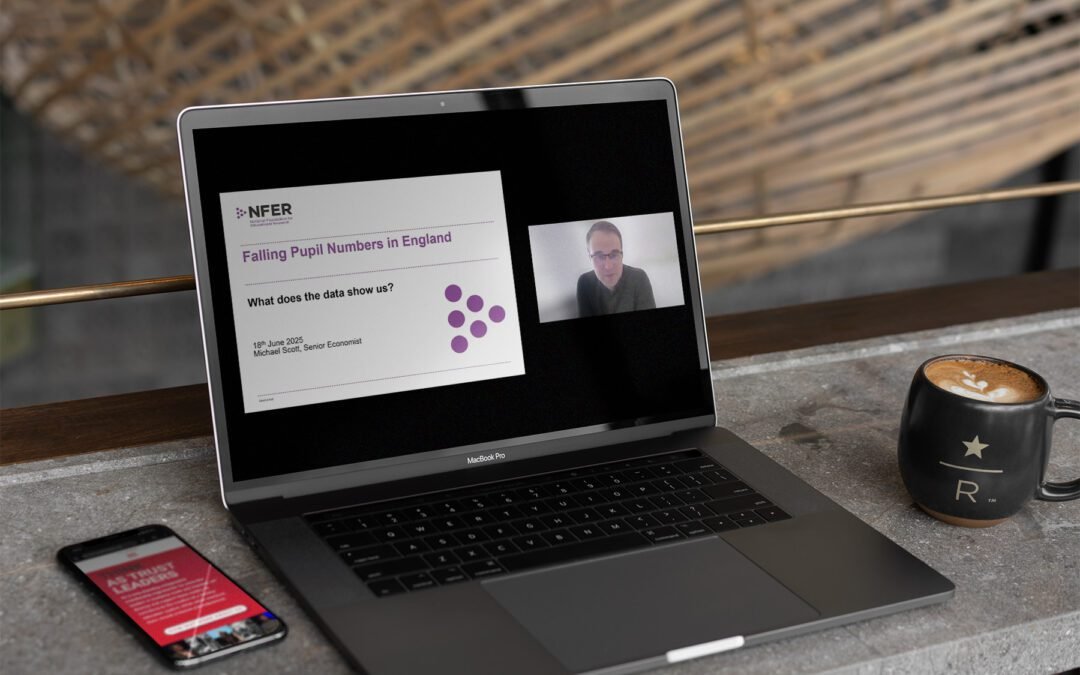
This a world in flux and the demands on leaders and their staff – as well as communities and children and young people – remain intense and unabbating. Six weeks in, many of us, our government included, are still wrestling with the impact and the consequences of this unprecedented situation. We’re all so busy reacting and responding to an ever-evolving context. This is not an easy time to be a leader, yet we can and must – with care – look ahead too.
We’re privileged to work with over 150 academy trust CEOs – members of our six #TrustLeader networks – and since schools were ‘closed’ in March, we have seen their professional relationships thrive through a spirit of selfless collaboration, benefitting schools and communities across the trust and maintained sectors. This has been a bright light in an otherwise challenging and demanding time.
Our Resources Manager, Rachael Gacs, has captured some incredible examples of academy trusts going above and beyond in response to the current crisis (https://forumstrategy.org/responding-to-covid19-academy-trusts-at-the-heart-of-their-communities/).
Our work with trust CEOs over the coming months will have a core focus on wellbeing – supporting CEOs to look after their own wellbeing, so they, in turn, can look after their teams, staff and pupils. The first session of last week’s #TrustLeaders Wellbeing Steering Group provided an opportunity to engage on this vital issue with CEOs from across our networks; and gave us a strong sense that positive change can emerge from this challenging situation:
“There is a general feeling amongst trusts that following the current crisis, things will definitely not go back to how they were – which is providing helpful questions as to how things might be done differently (and better!) in the medium- to long-term.”
#TrustLeaders Wellbeing Steering Group, April 2020
Circle of control – sustainable leadership in challenging times
In order to support CEOs to move forward in this way, we held an online seminar (on 28 April) to help make sense of the current context, to anticipate and plan for what may come next, and to remain strategic and focused on the ‘long game’ (in particular the next one to five years). Forum Strategy’s CEO, Michael Pain, urged colleagues to consider those elements that are within their control; those over which they may have some influence; and those they may be concerned about but cannot control or influence (and should therefore put aside for the present time). The health and success of leaders in the coming months depends on approaching the intense and evolving challenges with the circle on control firmly front of mind.

The current context
Over the course of the past five weeks trust CEOs have told us what they are finding challenging and/or consider a priority; and these have broadly fallen into three categories – ensuring:
- the wellbeing of staff and pupils
- employee, parent and community engagement
- a fit for purpose ICT infrastructure
Ongoing uncertainty about ‘when’ and ‘how’ schools will reopen for all children; worries about the implications of school closure on accountability for 2020/21 (and beyond); and the safeguarding and protection of staff and pupils continue to feature strongly in these discussions.
Considering what elements of the current situation are within CEOs’ ‘circle of control’, Michael discussed with colleagues some of the strategies they might consider strengthening at present. There clearly remain a number of key issues concerning trust CEOs but over which they have no control, including: what will happen with the virus (and whether there will be a second wave later in the year); when and how schools will be expected to fully reopen; the economic, social and health impacts of lockdown on staff, pupils and communities; and the impact of growing public debt on public sector funding and income generation for trusts.
The next six to nine months
Whilst reflecting on the above areas of concern, colleagues participating in the seminar were encouraged to consider strategies they could put in place to help mitigate the potential negative impacts of the various issues. Trusts should also anticipate the possibility of a second wave in the autumn and further enhance their provision which, in any case, will only serve to support schools, staff and pupils on return.
With regard to supporting staff, this could be addressed by establishing a range of measures that aim to reduce workload and ensure consistency, underpinned by appropriate wellbeing services and capacity. Implementing high-quality and consistent communications across schools; establishing sound ICT platforms supported by relevant expertise; creating collaborative networks of teachers across schools for the development of teaching resources and content; and developing advanced homeworking, wellbeing and safeguarding policies will all help to support staff wellbeing over the medium- to long-term.
We know that pupil wellbeing tops the chart of our CEO’s concerns; with fears that it will take a long time to re-integrate all pupils (not just the vulnerable and disadvantaged) back into anything remotely resembling a ‘normal’ school environment; not to mention the wide-ranging impacts of lockdown on family income and health.
“The way COVID19 has struck families is going to have ramifications far beyond a term’s loss of learning.”
‘What next after COVID19?’ Seminar, April 2020
Over the next six to nine months, colleagues were urged to expect not only a much wider learning gap between the most and least disadvantaged pupils; but also (as yet unmeasured in the national data) huge economic and mental health impacts on a much wider range and larger number of pupils. We know from research and national data that the mental health of pupils is already suffering; and that over 1.5 million applications for Universal Credit have been made since this crisis began – many of whom will be from parents of children not previously eligible for FSM.
Again, Michael highlighted a number of strategies that might enable trusts to mitigate these negative impacts on pupils; including:
- Developing a communications strategy to support growing numbers of parents in accessing health, financial and social support.
- Accessing new funding for technology and ICT platforms, together with the provision of relevant training for staff.
- Deepening investment in high quality staff and pupil wellbeing services.
- Developing strategies to enable left-behind pupils to catch up on return to school.
- Recruiting to the skills gaps across the trust (one key area appears to be ICT and digital platform management expertise).
The next one to five years
History tells us that whilst pandemics have a devastating impact on global society and the economy, they also tend to accelerate trends. Looking ahead for academy trusts, this gives our CEOs the opportunity to think differently about how they might chose to work in the medium- to longer-term.
“As school systems emerge from the pandemic, it will be important to identify innovations that can be sustained into the “next normal”; innovations that can improve student learning, but also contribute to a firmer financial foundation.”
McKinsey, April 2020
At Forum Strategy, since the beginning of the year, we have been engaging with CEOs across our #TrustLeaders networks to help shape our #NewNarrative for a #NewDecade – marking ten years since the emergence of academy trusts and redefining the role of academy trusts at the heart of their communities.
With this in mind, Michael asked colleagues to consider some of the accelerated trends triggered by COVID19 that are likely to have the greatest impact on their trusts over the coming years, including: accelerated growth for the those trusts that are well placed to do so; opportunities to respond to workforce expectations for more flexible working; innovation regarding the delivery of teaching and learning using online tools and remote technology; increasing investment in technology and ICT platforms; and placing even greater emphasis on sustainability.
Thinking of these issues in relation to the ‘six dimensions of organisational leadership’ set out in Michael’s book ‘Being The CEO’, there are clearly a number of key areas trust CEOs should be paying heed to over the coming years:
- Consider your trust’s leadership narrative – consider how your trust’s response to the current crisis epitomises your trust’s narrative; how are you articulating this to different audiences and are you planning to build on it in your engagement and relationships with your communities and other schools?
- Develop your trust as an employer of choice – More people will be drawn to public service work after COVID19, but workload and flexibility will remain key considerations after the pandemic too. New data is telling us that people will want more balance and time in their lives after the lockdown had ended. Trusts should look at addressing pre-existing workload challenges through harnessing new technologies for collaborative planning and learning resources across schools. They should also innovate around how technology can help to meet the demand for more flexible working and to create a more sustainable working environment. In looking to harness the growing desire to be involved in public service work, trusts should ‘tell their story’ around how they have been serving their communities, capturing case studies and testimonials.
- Secure improvement and innovation at scale – trusts should consider how success and therefore ‘improvement’ might be redefined in the years to come; away from top-down measures and priorities, and towards community-focused service and accountability. Focus on: harnessing technology for learning, engaging parents as partners in learning, supporting mental and physical health (for pupils and staff) and enhancing school improvement leadership capacity to support new and reformed approaches to learning online, as well as in the classroom.
- Embed organisational sustainability and compliance – the public debt is growing and it is likely that spending will be curtailed in years to come. Think about how you will plan for (likely) reduced public sector finances and therefore reduced budgets. Consider how your trust could adapt to potentially fewer opportunities for income generation; as well as reduced income from fewer pupil numbers across the primary phase. At the same time pupils’ and society will continue to have growing expectations around sustainability; strategies to support this are also likely to support cost reduction – such as reduced travel between sites, more energy efficient buildings etc.
- External partnerships. Trusts should think carefully about which organisations and partners will need to play a key role in the emergence from COVID19 and beyond.
The team at Forum Strategy will continue to support our #TrustLeaders over the coming months and years; providing ongoing opportunities for closer collaboration and the ‘space’ to think strategically for the long-term benefit of our staff, pupils, parents and communities.


